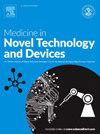Artificial intelligence in de novo protein design
Q3 Medicine
引用次数: 0
Abstract
The primary goal of protein engineering has always been to create molecules with optimal functions and characteristics. One of the most exciting avenues of research in this field is de novo protein design. This approach facilitates the synthesis of entirely new molecules without relying on existing protein, thereby offering a novel method for generating molecular entities that were previously unimaginable. The application of artificial intelligence in this field has been a significant advancement. By leveraging machine learning algorithms trained on extensive sequence and structure datasets, scientists have been able to make de novo protein design a practical reality. In this paper, we will delve into the key artificial intelligence innovations that have driven this progress and explore how they unlock groundbreaking opportunities. These advancements, we believe, have the potential to push beyond the current state of the art, enabling us to design proteins strategically and robustly. Moreover, they offer solutions to pressing societal challenges, such as developing new therapeutics, creating sustainable biomaterials, or engineering enzymes for environmental remediation.
人工智能在蛋白质设计中的应用
蛋白质工程的主要目标一直是创造具有最佳功能和特性的分子。该领域最令人兴奋的研究途径之一是从头开始的蛋白质设计。这种方法有助于在不依赖现有蛋白质的情况下合成全新分子,从而为生成以前无法想象的分子实体提供了一种新方法。人工智能在这一领域的应用取得了重大进展。通过利用在广泛的序列和结构数据集上训练的机器学习算法,科学家们已经能够使从头开始的蛋白质设计成为现实。在本文中,我们将深入研究推动这一进步的关键人工智能创新,并探索它们如何释放开创性的机会。我们相信,这些进步有可能超越目前的技术水平,使我们能够有策略地、稳健地设计蛋白质。此外,它们为紧迫的社会挑战提供了解决方案,例如开发新的治疗方法,创造可持续的生物材料,或用于环境修复的工程酶。
本文章由计算机程序翻译,如有差异,请以英文原文为准。
求助全文
约1分钟内获得全文
求助全文
来源期刊

Medicine in Novel Technology and Devices
Medicine-Medicine (miscellaneous)
CiteScore
3.00
自引率
0.00%
发文量
74
审稿时长
64 days
 求助内容:
求助内容: 应助结果提醒方式:
应助结果提醒方式:


